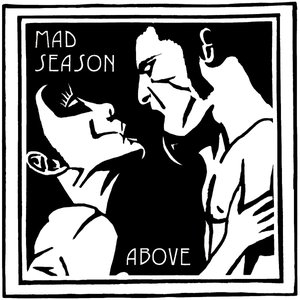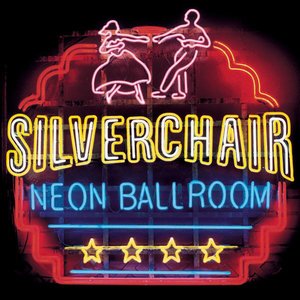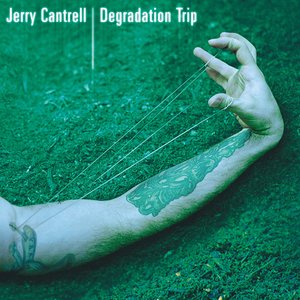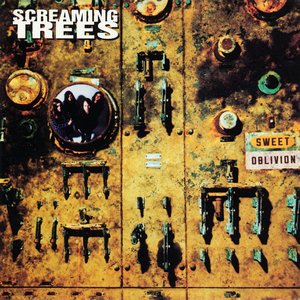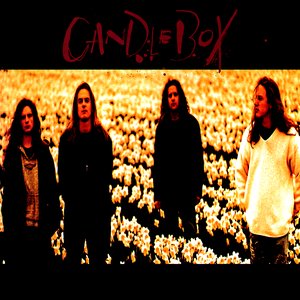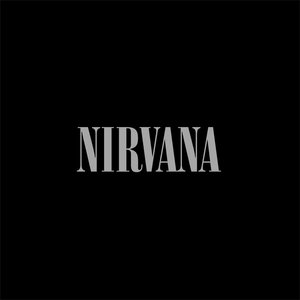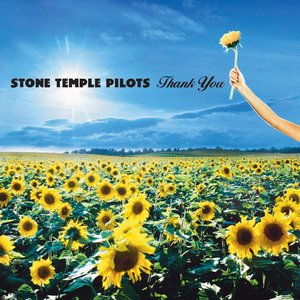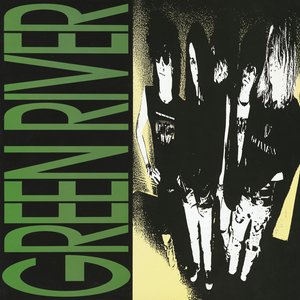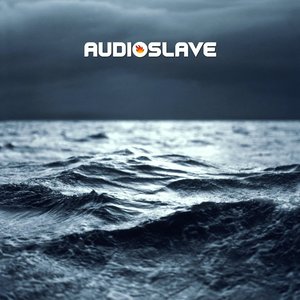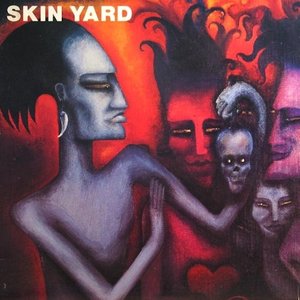Wiki
-
Release Date
9 May 1996
-
Length
16 tracks
Down on the Upside is the fifth studio album by the American alternative rock band Soundgarden, released on May 21, 1996 through A&M Records. Following a worldwide tour in support of its previous album, Superunknown (1994), Soundgarden commenced work on a new album. The music on the album was notably less heavy than the group's preceding albums and featured the band experimenting with other sounds.
The album debuted at number two on the Billboard 200 and spawned the singles "Pretty Noose", "Burden in My Hand", "Blow Up the Outside World", and "Ty Cobb". The band took a slot on the 1996 Lollapalooza tour and afterward supported the album with a worldwide tour. Down on the Upside would end up becoming Soundgarden's final studio album as tensions within the band led to its break-up in April 1997. The album has been certified platinum by the RIAA in the United States.
The album's recording sessions took place from November 1995 to February 1996 at Studio Litho and Bad Animals Studio in Seattle, Washington. Studio Litho is owned by Pearl Jam guitarist Stone Gossard. The band members made the decision to produce the album themselves. On the choice of not working with a producer, frontman Chris Cornell said that "a fifth guy is too many cooks and convolutes everything. It has to go down too many mental roads, which dilutes it." Adam Kasper, who previously had worked with Soundgarden as an assistant engineer on Superunknown, worked with the band as a production collaborator. The album was mixed by Kasper.
Work on the album began in July 1995. The band took a break to perform at festivals in Europe, where new material was road-tested. Afterward, the band did more songwriting for about a month and then recorded most of the album at Studio Litho. The overall approach to songwriting was less collaborative than with past efforts, with the individual band members having brought in most of the songs more completely written. The band sought to try things it had not done before and to use a greater variety of material. The band tried to create a live atmosphere for the album, and looked to leave in sounds that producers would normally try to clean up, such as feedback and out-of-tune guitar parts. The overall time spent working on the album was less than what the band had spent working on Superunknown. Cornell described the album-making process as "way faster and way easier".
Most of the material was written by Cornell and bassist Ben Shepherd, the latter having already worked on six of the sixteen album tracks. Reportedly, tensions within the group arose during the recording sessions, with guitarist Kim Thayil and Cornell allegedly clashing over Cornell's desire to shift away from the heavy guitar riffing that had become the band's trademark. Thayil's only contribution to the album was the song "Never the Machine Forever", for which he wrote both the lyrics and the music, and which was also the last song the band recorded. The song initially came out of a jam session Thayil had with Seattle musician Greg Gilmore. In the liner notes, Thayil credits Gilmore for inspiring the song. He stated that he had a lot of incomplete music ideas that were missing lyrics and were not arranged, so they did not make the album. Thayil said, "It can be a little bit discouraging if there isn't satisfactory creative input, but on the other hand, I write all the solo bits and don't really have limitations on the parts I come up with for guitar." Cornell said, "By the time we were finished, it felt like it had been kind of hard, like it was a long, hard haul. But there was stuff we were discovering."
The songs placed emphasis on vocals and melody over the heavy guitar rifts that was found on the band's earlier albums. It also features a rawer sound than Soundgarden's previous album Superunknown, as the band members produced the record themselves. Stephen Thomas Erlewine of Allmusic said that Soundgarden "retained their ambitious song structures, neo-psychedelic guitar textures, and winding melodies but haven't dressed them up with detailed production." The songs vary in tempo throughout the course of the album, with Thayil describing the album as having a "dual nature." He explained, "It keeps listeners on their toes and lets them know they're not getting the same album over and over." Shepherd called the album "the most accurate picture of what Soundgarden actually sounds like," stating, "It's way more raw. It's way more honest. It's way more 'responsible.'"
The band explained at the time that it wanted to experiment with other sounds (for example, the song "Ty Cobb" features Shepherd and Cornell playing mandolin and mandola). This experimentation can be heard to a lesser degree on Superunknown. Soundgarden used alternative tunings and odd time signatures on several of the album's songs. For example, "Never the Machine Forever" uses a time signature of 9/8. "Pretty Noose" and "Burden in My Hand" were written in C-G-C-G-G-E tuning.
The overall mood of the album's lyrics is not as dark as on previous Soundgarden albums. According to Cornell, "Pretty Noose" is about "an attractively packaged bad idea," and "Ty Cobb" is about a "hardcore pissed-off idiot." Cornell said that the songs "Never Named" and "Boot Camp" are based on his childhood. Thayil said that the lyrics for "Never the Machine Forever" are about "a life-and-death match between an individual and a less specifically defined entity." Cornell referred to "Overfloater" as "self-affirming."
Down on the Upside reached number two on the Billboard 200 album chart. It was held off the top spot by the Fugees album, The Score. The album failed to match the sales of its predecessor, Superunknown. Down on the Upside has been certified platinum by the RIAA.
Spin gave the album an eight out of ten. The review said that the album is "as sprawling and generous-spirited as Superunknown, but…is a looser and live-er-sounding affair, not seeking the same level of aural precision." Alternative Press gave the album a three out of five. The review said that Soundgarden are "now fully capable of penning some damned spiffy pop songs," and added that "they sound more human here, like they're playing in your living room." Rolling Stone staff writer David Fricke gave Down on the Upside three out of five stars, observing that the album has "some quality frenzy," but criticizing it for "lacking defining episodes of catharsis." Fricke said, "Soundgarden seem to be digging in their heels rather than kicking up dirt, relying too much on drone-y impressionism and clever (as opposed to cleaving) guitar motifs." Neil Strauss of The New York Times called the album the "rawer, looser follow-up to Superunknown." He added, "Generally, identifying with animals in song lyrics is a sign of low self-esteem, and Soundgarden is no exception. For all the virility and macho power that rock singers have tried to wring from the snake, Soundgarden remains more interested in the fact that it is the only animal cursed to spend its days slithering on the ground."
David Browne of Entertainment Weekly gave the album a B+. Browne said, "Few bands since Led Zeppelin have so crisply mixed instruments both acoustic and electric." He praised several songs as being "as powerful as anything the band has done." Browne criticized the album's production, saying "like many self-produced efforts, it shows." He added, "With arrangements that crest and fall to the point where a road map would have helped, the overlong (16-song) album is often unwieldy and could have benefited from judicious trimming."Allmusic staff writer Stephen Thomas Erlewine gave the album three out of five stars, saying that "it might seem like nothing more than heavy metal, but a closer listen reveals that Soundgarden haven't tempered their ambitions at all." The reviewer for Melody Maker said that "their roots don't matter now. All I care for now is the immediacy of their pop moments." Critic Robert Christgau described the album as "brutal depression simplified," while Jason Josephes of Pitchfork Media called it a "double shot of grunge, no foam but plenty of caffeine."
Down on the Upside included the singles "Pretty Noose", "Burden in My Hand", and "Blow Up the Outside World", all of which had accompanying music videos. All three singles placed on the Mainstream Rock and Modern Rock charts. The album's other commercially released single, "Ty Cobb", did not chart, however its acommpanying B-side, "Rhinosaur", also from the album, did chart. "Burden in My Hand" was the most successful song from Down on the Upside on the rock charts, spending a total of five weeks at number one on the Mainstream Rock charts and reaching number two on the Modern Rock charts.At the 1997 Grammy Awards, "Pretty Noose" received a nomination for Best Hard Rock Performance.
The album's cover art, photographed by Kevin Westenberg, features the members of the band in silhouette. At one point the cover art image for the "Blow Up the Outside World" single was considered for use as the cover art image for Down on the Upside. The album was also released in a limited edition with the Into the Upside interview disc.
The title Down on the Upside comes from a line in the song "Dusty". The lyric is "I think it's turning back on me/I'm down on the upside". Cornell said that the title represents the different feels on the album. In an interview Cornell explained how the name was chosen:
"I brought it up at some point because the song that the title came from was "Dusty", but my title for it was Down on the Upside, but Ben wrote the music and he called it "Dusty". So since we don't really like having song titles being the title of the record, 'cause it brings this weird, undue focus to the song, I thought it would be cool to call it Down on the Upside. We started thinking about all these other titles, and worrying about them describing the whole record without excluding anything…So it was the last minute and we were at a photo shoot for Spin and someone called and said, 'We need your title now so we can start doing the record package,' so Matt Cameron brought up the title again, and everyone went, 'yeah, that's it.'"
According to an interview with the band, Cameron and Shepherd jokingly said that two other titles considered for the album were Mr. Bunchy Pants and Comin' At Ya!
The band took a slot on the 1996 Lollapalooza tour with Metallica. Metallica had insisted on Soundgarden's appearance on the tour. Thayil said that the band wasn't interested in doing the tour until it became a "Metallica tour." During the Lollapalooza tour, the band members reportedly took separate flights and then met at the gigs.
After Lollapalooza, the band embarked on a worldwide tour in support of the album. Tensions continued to increase and when asked if the band hated touring, Cornell said, "We really enjoy it to a point and then it gets tedious, because it becomes repetitious. You feel like fans have paid their money and they expect you to come out and play them your songs like the first time you ever played them. That's the point where we hate touring." The band was criticized for its lack of energy while performing (specifically Cornell and Shepherd).Cornell said that "after a number of years, you start to feel like you're acting. All those people who criticize us for not jumping around should shut the fuck up, and when they come to our shows they should jump around and entertain us for a while." Thayil had an issue with how the band's audience had changed, stating that "nowadays, you also have the kids and the housewives, the casual fans. With your casual fans, you say, 'Thanks for the money.' And they say, 'Thanks for the song.'" The band's concerts in December 1996 were postponed for a week due to Cornell's throat problems.
At the tour's final stop in Honolulu, Hawaii on February 9, 1997, Shepherd threw his bass into the air in frustration after suffering equipment failure, and subsequently stormed off the stage.The band retreated, with Cornell returning to conclude the show with a solo encore. On April 9, 1997, the band announced its disbanding. Thayil said, "It was pretty obvious from everybody's general attitude over the course of the previous half year that there was some dissatisfaction." Cameron later said that Soundgarden was "eaten up by the business."
Album descriptions on Last.fm are editable by everyone. Feel free to contribute!
All user-contributed text on this page is available under the Creative Commons Attribution-ShareAlike License; additional terms may apply.

